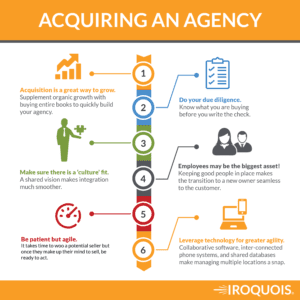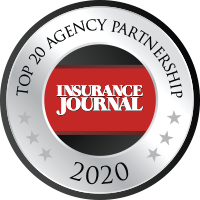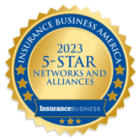Insurance agency mergers and acquisitions can be incredibly beneficial but can be hard to maneuver. In part one of this mini series, we are talking with agency principal Sean Cornelius and his vice president, Joe Palumbo. This tag team has recently acquired five agencies. They have worked hard to be able to merge them cohesively. They talk about how to be patient in the process and how an integrated phone system has created a culture of teamwork. Check out Weed Ross for your insurance needs.
Edwin K. Morris (1s):
Welcome to the trusted advisor podcast brought to you by Iroquois group. Iroquois is your trusted advisor in all things insurance. I am Edwin K. Morris. Today in the studio we have two guests, both are from Weed Ross group. First is Sean D. Cornelius, the president of Weed Ross, and Joe Palumbo, vice-president. Insurance mergers and acquisitions. How exciting is this topic? Tell me all about it, Sean.
Sean Cornelius (33s):
Well, I find it pretty exciting. At one point I was running an insurance agency in 2016 and only had two employees at one location. And now we have four locations and 14 of us, 14 or, I think 15 actually. So
Edwin K. Morris (49s):
That’s quite a growth cycle.
Sean Cornelius (52s):
It is. And our whole industry from the carriers, meaning the insurance companies, on down to the agencies, the technology companies, everything is consolidated. So everybody’s buying and everybody’s selling and we want to be on the side that’s buying and we’ve done quite a bit of that since January. Joe and I have gone through quite the process.
Edwin K. Morris (1m 12s):
So what’s driving all that
Sean Cornelius (1m 14s):
You know, we’re in a growth mode. We want to, we want to grow. We want to get bigger and you can certainly do that organically. Meaning going out and targeting insurance policies to write. We’re doing a lot of that with commercial insurance, but also home and auto, you know, kind of what got us here. But the fastest way to grow is through acquisition, is through finding insurance agencies that want to sell or that you can merge into your existing insurance agency, even a small agency, you know, will have written premium, volume, and revenue that is far greater than the average account you’re going to come across.
Edwin K. Morris (1m 48s):
What is a leading indicator for you or Joe, both of you, about looking for someone to acquire?
Sean Cornelius (1m 56s):
Joe, do you want to take that?
Joe Palumbo (1m 58s):
Yeah, and I think one of the biggest things that we’ve looked at is, you know, we kind of map them out, try and look for a geographical region that we thought we could manage from where we currently are. And then the first thing we do is look them up online. And if they do not have a website, that is probably a good target. So we’ll add them to the list. And you know, that’s a little bit harder to do your due diligence on, but you can, you can usually find out, you know, who the owner is. If they have multiple locations, you can track them down. And I think that’s probably one of the biggest factors we’ve used. And actually Sean, in a past life, different position, had actually done this as his full-time job basically.
Joe Palumbo (2m 45s):
And we dug up some notes and added them back to the list of, so now we’re circling back with those guys.
Edwin K. Morris (2m 50s):
So what’s the biggest risk in acquisition.
Sean Cornelius (2m 54s):
I think it’s finding an agency that doesn’t onboard well with, with your agency. Whether it’s the type of accounts that are written or the culture of that agency and not being able to fully integrate it into your agency vision, meaning that we’re a preferred agency. So we work with a lot of higher value homeowners. We do a lot of second homes. We do commercial insurance for property managers and restaurants, and non-profits, we don’t have a lot of payment issues from clients or, you know, heavy claims issues. And so you want to look for an agency that fits in line with your vision.
Sean Cornelius (3m 35s):
An agency that had a lot of those type of issues, It was the opposite of our agency, it just wouldn’t be a good fit. Those agencies can certainly make money. But you want to line up with someone that operates in the, in the same arena that you operate in.
Edwin K. Morris (3m 49s):
Well, you bring up a good point as far as the mission alignment, right? Because you don’t want to have something that’s, that’s conflicting with whatever you normally do or culturally do. What’s the, how do you get to even creating your own mission? Do you think all agencies even have that?
Sean Cornelius (4m 5s):
No, I don’t think so. I think when I first started the insurance industry, I worked for a couple of major carriers on that side. And the first carrier I worked for, they talked about company culture and I thought that was baloney. And, and then I went to work for another major carrier. These are two of the top carriers in the United States and everything was totally different. And I was like, Oh, this is what company culture means. And I think it comes from the top. You have to have a shared vision. And Joe and I with our partnership have that. If you bring on employees through these acquisitions and mergers and you bring on clients, you have to be able to implement your shared vision and your culture of your agency. And if you can’t do that, then it’s just not going to be successful.
Sean Cornelius (4m 48s):
It would be like opening another restaurant if you already had one and it being, just feeling totally different and it just, you need to manage what you understand. And so you need to fit it in alignment with what you already have.
Edwin K. Morris (5m 1s):
Alignment aside, your, you talked about employee, so we’re talking about onboarding process. So do you actually look at that as like a new hire onboarding process or some something different?
Sean Cornelius (5m 13s):
I, I th I think we really do, and Joe can probably add to this as well, but one of the things that we found the most valuable, there’s one particular acquisition where we got two employees and they’re integral to our team. The one person is working as a commercial line CSR, which if you want to grow with commercial lines, you need that. That’s someone that’s going to quote and service the book that you bring in. And then the other person is working as a personal lines CSR. And they’re two essential people to our team that help us manage our book. And it’s hard to find good people. So if you can, if you can find someone through an acquisition and also it’s worthwhile, there’s value in that, and it helps create a continuity.
Sean Cornelius (5m 53s):
The clients, you know, they may know that the name may have changed, or you may have a different location, but they know that Sue or Barb or whoever it might be is, is still, is still like working with you.
Edwin K. Morris (6m 5s):
That personal connection, that trust relationship, that communications is all coming with it. Joe, you got anything?
Joe Palumbo (6m 11s):
Yeah. And I think we’ve been, like Sean said, we’ve been very lucky so far with the, the onboarding process of the staff at the agency that we’ve purchased or merged with. And I think that has a little bit to go into it. You can kind of tell when you walk into the agency though, most recent we’ve been, you know, basically just cold calling on them and you can tell quickly, you know, if this person is very engaging or if they’re kind of put off by someone coming in and thinking, you know, cause I think everyone thinks the worst case scenarios happening when, you know, the company is going to be selling. And I think if you were to ask the people that have joined us over the last year, that it’s gone much better than they had planned, obviously they’re a little bit nervous because you know, not everybody loves change, but right,
Edwin K. Morris (6m 56s):
And I’m sure with this whole procedure, that change is definitely a big piece of this. And that kind of brings the next point is that, so how does automation fit into this and are you automated heavy? Are you, are you knowledge ecosystem built? Are you bringing in things that totally are new for a lot of these acquisitions?
Sean Cornelius (7m 17s):
I think compared to our industry, we’re fairly automated heavy, I think we w we work in an industry that has been slow to automation. You know, I come from a couple generations of people before me that were insurance. I remember my dad stapling Polaroid photos, you know, to sheets growing up. I remember just cabinets on cabinets of filing cabinets. I mentioned this earlier to Edwin, a little tidbit is I can fit 46 banker boxes of files in my Chevy suburban. And I know this because we took seven locations to four. And so when you have a small business, you do a lot of that grunt work. So automation can be all kinds of things. I mean, some of these agencies don’t have any electronic files.
Sean Cornelius (8m 0s):
They’re operating the same way they did in 1955. And other ones, you know, will be much more updated than that. But even when I took over Weed Ross, we still weren’t using Slack. Joe introduced us to that. Our phone systems, weren’t, weren’t integrated. Now, we’re using Smartsheets. There’s a lot of stuff that goes into it. Joe is kind of our integration expert, so to speak. So I can let him talk about how, you know, the database is merged and how that whole process is.
Joe Palumbo (8m 29s):
Yeah. So a lot of these, luckily, a lot of the agencies that we’ve merged with currently had at least their client information in some sort of electronic file, you know, they obviously still had their paper files, but we were able to merge their electronic databases into ours so that all the clients can be served. And that’s basically how we’ve kind of connected that with the phones where if ever, all the clients, regardless location are in one place that we’ve worked, the phones that, you know, if a call comes to orchard park and it can’t be answered, it could roll to Ellicottville, but someone then in Ellicottville can service anyone from any of the three other locations.
Edwin K. Morris (9m 11s):
That’s, that’s a whole integrated enterprise solution., Where where’s the future? To future-proof yourself, you’re, you’re now, your point of creating this operational capacity that didn’t happen, didn’t exist before, and you’re bringing more into the fold. So what’s five years from now?
Sean Cornelius (9m 28s):
I th I think it’s continuing to grow. We built an infrastructure that to us right now, it seems very sustainable. When Joe had mentioned that I had called on insurance agencies to purchase prior. That would have been back in 2011. And really back before I was heavy on the production side of agencies. But if you had that, that infrastructure, you can add to that and grow and scale in a manageable way. So our, our goal is to continue to evolve both culturally and with technology in our organization, and to continue to acquire books of business and agencies.
Edwin K. Morris (10m 8s):
Well, I wish you both huge success. It sounds very exciting. Anything you want to leave for the last thought before we wrap it up,
Sean Cornelius (10m 17s):
I think just do your due diligence. You know, that’s it, you want to be fairly quick about this because it’s a, it’s a competitive market. So if someone catches wind that you’re going in and you’re going to buy somebody, expect to have one or two competitors come in behind you, and maybe they were there before you, but you wanna, you wanna make sure you’re able to see all the records, evaluate the carrier relationships, make sure the companies line up with what you have. And that the way that that person was doing business was with integrity and evaluate all that before, before you make your decision and your offer to that other agency,
Edwin K. Morris (10m 54s):
The suggestion is, is that do all that due diligence, but also have it in a concise manner. Cause speed is of the essence, right? Being able to execute as fast as possible, as safe as possible is the best way.
Sean Cornelius (11m 7s):
Yeah. If they say they’re ready to go, yeah, it can, and you’re not ready…
Joe Palumbo (11m 12s):
I think that, I think it starts with patience too, you know, not everyone is ready to solve right away, but when they are ready to sell, it’s like the snap of a finger. Like it could have taken them years to decide, and then they call you and they’re like, all right, let’s do this. We need to close in a week. You gotta be quick on your feet and get to it.
Edwin K. Morris (11m 30s):
Yeah, no kidding. Well, that sounds very exciting. I think that the region will continue to grow for you two. So congratulations.
Joe Palumbo (11m 38s):
Thank you.
Sean Cornelius (11m 39s):
Thank you.
Joe Palumbo (11m 39s):
Thanks for listening to this edition of the trusted advisor podcast brought to you by Iroquois group. Iroquois, your trusted advisor for all things insurance, and remember get out of the office and sell. This program was recorded at the Cohen multimedia studio on the grounds of Chautauqua institution. I am Edwin K. Morris, and I invite you to join me for the next edition of the trusted advisor.



